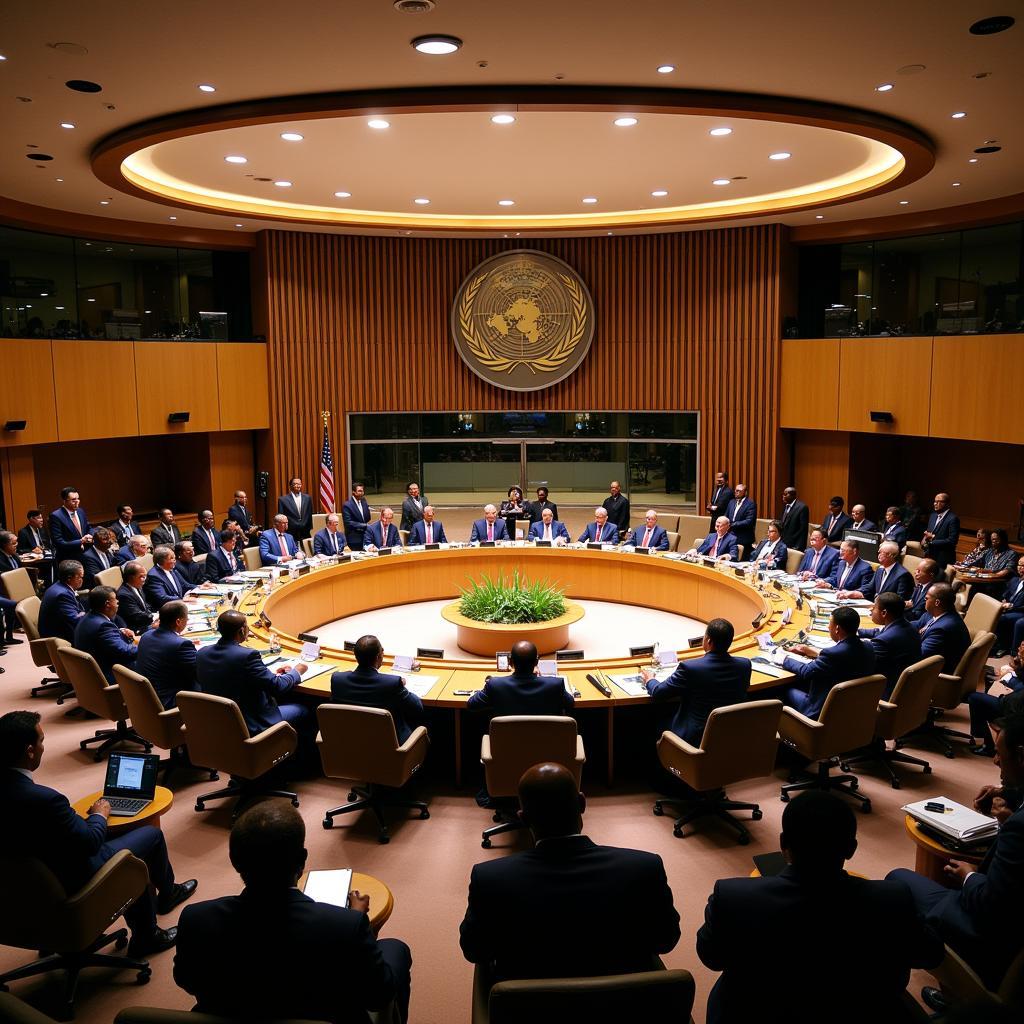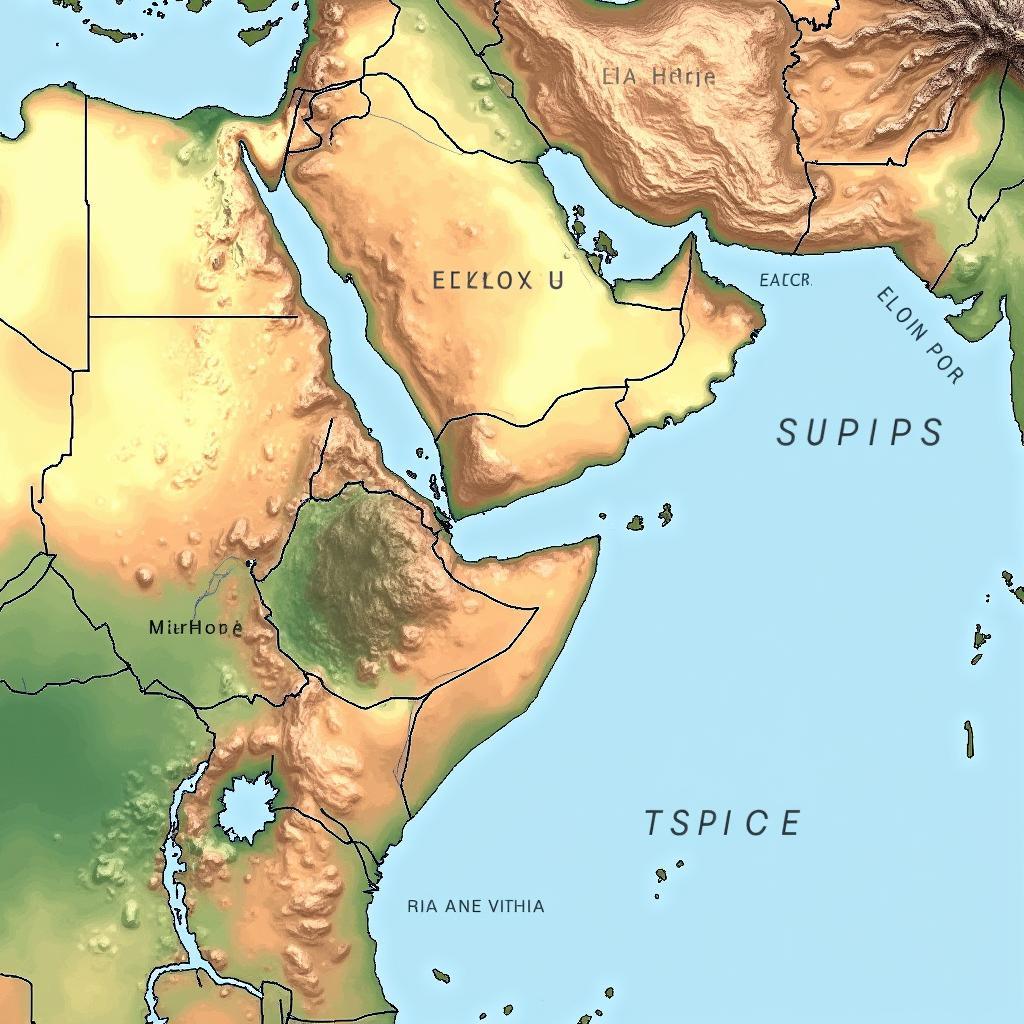Navigating the Complexities of African Geopolitics
The African continent, a tapestry of diverse cultures, rich histories, and abundant resources, is also a stage for intricate geopolitical dynamics. Understanding African Geopolitics – the interplay of geography, politics, and international relations – is crucial for comprehending the continent’s present and future trajectory.
The Shifting Sands of Power: Key Players in African Geopolitics
Africa’s geopolitical landscape is far from static. While colonial powers once held sway, the post-colonial era has witnessed the rise of new players and alliances. Regional powers like Nigeria, South Africa, and Egypt assert their influence, while external actors, including China, the United States, and the European Union, actively engage in economic and strategic partnerships.
 African Union Summit 2023
African Union Summit 2023
Resources and Rivalries: The Geopolitics of Natural Wealth
Africa’s vast reserves of oil, minerals, and arable land are both a blessing and a curse. They attract foreign investment and drive economic growth but can also fuel conflict and instability. The competition for control over these resources shapes alliances and rivalries, impacting everything from regional security to international trade.
Beyond Borders: Transnational Challenges and Cooperation
The interconnected nature of contemporary challenges necessitates a collaborative approach to African geopolitics. Issues like climate change, terrorism, and migration transcend national boundaries, demanding regional and international cooperation. Organizations like the African Union play a crucial role in fostering dialogue, promoting peace, and tackling shared challenges.
The Quest for Development: Geopolitics and Economic Growth
Geopolitical considerations heavily influence Africa’s development trajectory. Strategic partnerships and investments can drive economic growth, while political instability and conflict can hinder progress. Navigating these complexities is essential for unlocking Africa’s economic potential and creating a more prosperous future for its people.
African Geopolitics in the 21st Century: Trends and Transformations
Several key trends are shaping the future of African geopolitics:
- The rise of Africa: Africa’s growing population, expanding economies, and increasing global influence are reshaping the geopolitical landscape.
- Shifting global power dynamics: The rise of China and other emerging economies presents both opportunities and challenges for African nations.
- The digital revolution: Technology is transforming African societies and creating new avenues for political engagement and economic development.
- The urgency of climate action: Addressing climate change is crucial for Africa’s sustainable development and security.
Understanding African Geopolitics: A Call to Engagement
Comprehending the complexities of African geopolitics is not merely an academic exercise but a call to action. By engaging with the continent’s challenges and opportunities, we can contribute to building a more just, equitable, and sustainable future for Africa and the world.
FAQs
1. What are the main drivers of African geopolitics?
African geopolitics is shaped by factors like colonialism’s legacy, the quest for resources, the rise of new powers, transnational challenges, and the pursuit of economic development.
2. What is the role of the African Union in African geopolitics?
The African Union promotes peace, security, and cooperation among African nations. It plays a vital role in addressing shared challenges and fostering regional integration.
3. How does climate change impact African geopolitics?
Climate change exacerbates existing vulnerabilities in Africa, leading to resource scarcity, displacement, and conflict. This requires collaborative solutions and adaptation strategies.
4. What are the future prospects for African geopolitics?
Africa’s growing global influence, the digital revolution, and the need for climate action are shaping the continent’s geopolitical future.
5. How can I stay informed about African geopolitics?
Reputable news sources, academic journals, and organizations focused on Africa provide valuable insights into the continent’s geopolitical landscape.
Need Help Navigating the Complexities of African Markets?
For inquiries regarding investment opportunities in Africa, such as understanding the African copper share price, or the current exchange rate for 360 South African Rand in Indian Rupees, please don’t hesitate to contact us. Our team at “African Life” is dedicated to providing you with up-to-date information and insights to help you make informed decisions.
Contact us:
- Phone: +255768904061
- Email: kaka.mag@gmail.com
- Address: Mbarali DC Mawindi, Kangaga, Tanzania
We are available 24/7 to assist you.



